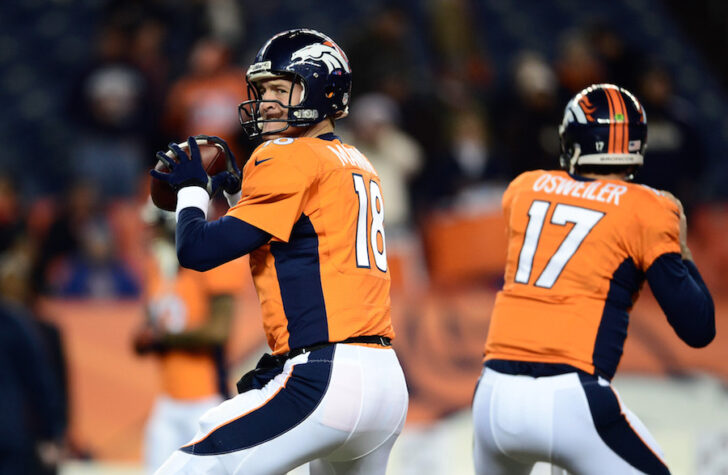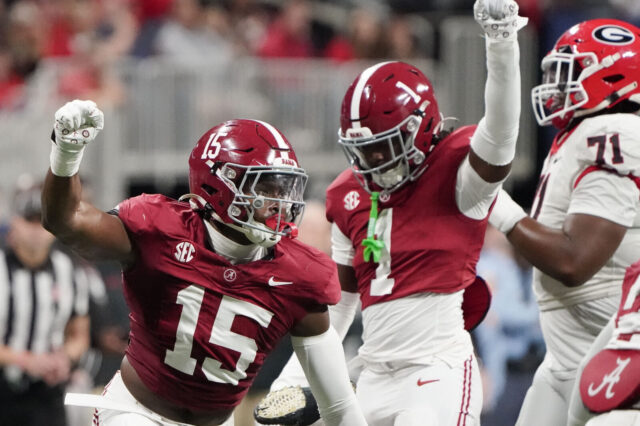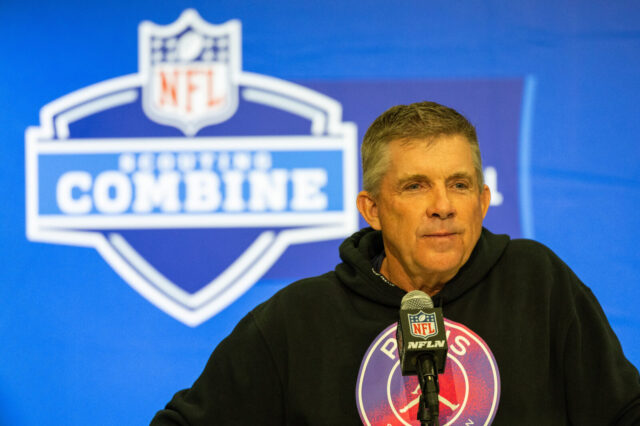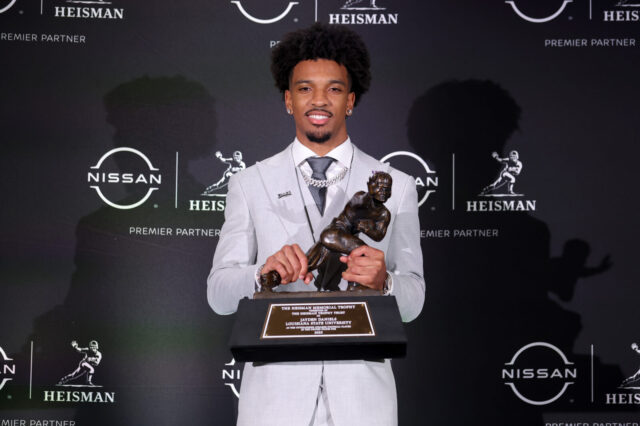For the past four weeks, if not longer, the debate has raged in Denver; it’s been a non-stop, back-and-forth, tit-for-tat argument about which quarterback should be leading the Broncos this season. In the Mile High City, the better part of the 2015 season has been consumed by the Peyton Manning vs. Brock Osweiler discussion.
Along the way, a funny thing happened, however. While everyone was busy coming up with the latest zinger to roast the person on the other side of the aisle, trying to find a way to rip an all-time great or bash a promising youngster, each side of the great debate completely missed the real issue.
The fact of the matter is that the Broncos offense isn’t very good. And it doesn’t matter who is playing quarterback.
Yesterday, with the No. 1 seed in the AFC in their control and the inside track to a fifth-straight AFC West title on the line, Denver lost at home to an Oakland team that was reeling. After completely dominating the first half, the orange and blue managed to give away a game to the silver and black.
Today, the “Brock bashers” will be pointing the finger of blame at the Broncos 25-year-old quarterback; they’ll be pointing out that No. 17’s offense didn’t get into the end zone in the first half against the Raiders, while also failing to score a single point in the second half. They’ll be right, but they’ll be blaming the wrong guy; it wasn’t all Osweiler’s fault.
At the same time, the “Manning haters” will be claiming that the future Hall of Fame inductee only posted nine offensive points against the Raiders earlier this season; they’ll be highlighting the fact that No. 18 and Company sputtered often when he was at the helm during the first nine games. And they’ll also be right, but they too will be blaming the wrong guy; it wasn’t all Manning’s fault.
The reality is that the Broncos offense has been relatively anemic for most of the season, no matter which quarterback was under center. As a result, it’s time to start looking for reasons other than the signal caller for what ails Denver’s attack.
As is often the case in football, start in the trenches. The Broncos offensive line is an absolute mess, as it has been all season. On Sunday, Khalil Mack turned Michael Schofield into his personal revolving door, blowing past the Broncos right tackle for four of his five (yes, five) sacks on the day. By the end, it was painful to watch the young lineman grasp at straws play after play after play.
Of course, this is nothing new; Denver has struggled up front since training camp. Anyone who ventured to Dove Valley to watch a practice saw the Broncos defense dominate the Broncos offense, mainly because they were constantly in the backfield.
And this shouldn’t have been a surprise to anyone. After all, the season started with a left tackle (Ty Sambrailo), left guard (Ben Garland) and center (Matt Paradis) that had played a combined zero NFL snaps. Goose egg. Nada. Zero. And now, due to Sambrailo’s injury and some reshuffling, Denver is playing two other linemen (Schofield and rookie Max Garcia) who hadn’t been on the field for a single play prior to Week 1 of the 2015 season. That’s five different players with absolutely no prior experience being a starter at some point this year.
Apologists will blame the injury to Ryan Clady for the Broncos woes up front, as though the All-Pro left tackle was going to fill multiple spots along the o-line. They’ll also ignore the fact that his season-ending injury occurred in May, giving Denver plenty of time to find a solution, something they didn’t even attempt to do until signing Evan Mathis just before the final preseason game. It was too little, too late.
This sieve of an offensive line has resulted in Osweiler being sacked 17 times in 18 quarters. Is some of that on the young quarterback? Perhaps. But for the most part, they’ve occurred because of poor protection, not hanging onto the ball too long.
The failures along the o-line are also the biggest reason why Manning threw a league-leading 17 interceptions before getting hurt. The veteran quarterback was repeatedly throwing the ball before he wanted to, trying to guess at the defense and estimate where his receiver would be; too often, his predictions were off on both counts.
But it hasn’t just been the guys in the trenches who have struggled this season; the Broncos have also seen their skill position players fail to answer the bell, as well. Week after week, someone who is being counted on to make a play is failing to do so.
Against the Raiders, there were certainly plenty of culprits. Demaryius Thomas had a big drop in the first half at the goal line, a fumble in the third quarter that gave the Raiders great field position and a monster muffed pass late in the game that would’ve been a first down. But that pales in comparison to the egregious blunder that Vernon Davis had on fourth down in the waning moments against Oakland; Osweiler hit him for what would’ve been a first down and big gain, only to see the veteran tight end drop the ball.
Of course, this is nothing new either. Early in the season, Thomas had his share of mishandled passes. But he wasn’t alone. Owen Daniels had a big drop in Indianapolis, while Ronnie Hillman had a touchdown slip through his fingers at Oakland. It’s been happening all year long.
And yet, the blame game doesn’t stop there. The Broncos offense isn’t just struggling because of the players on the field; the coaches are also at fault.
Was Schofield awful against Mack on Sunday? Absolutely. But it’s inexcusable that the Denver coaching staff didn’t give him any help, either with a tight end on that side of the field or by keeping a running back in to block. At some point, an adjustment has to be made in order to account for what is an obvious mismatch.
That type of head-scratching decision is nothing new, however. The Broncos did the same thing when they traveled to play the Colts earlier this season. A week after dominating the previously undefeated Packers by playing a lot of two tight end formations and running the football, Denver totally abandoned that scheme and philosophy in Indy; they only ran the ball seven times in a first half that yielded zero offensive points.
It all adds up to an ugly offense, something that dates back to the Broncos preseason games. From day one, it’s been a struggle to move the ball and put points on the board during the first season under Gary Kubiak.
And ultimately, that’s where the finger of blame needs to point. The reality is that the head coach’s offense isn’t producing, hasn’t produced and doesn’t show any signs of being able to produce.
For nine weeks, everyone said the problem was Manning; he couldn’t play under center and operate Kubiak’s system. The real issues were obscured, mostly because people have been too busy citing Father Time’s all-time record and making snarky comments about an arm that is perhaps a bit too al dente.
But now that the Broncos are struggling under Osweiler, as well (they’ve scored 43 points in the 15 quarters outside of the last 15-plus minutes against New England), that no longer seems like a viable excuse. During the vast majority of time under the backup QB, things have actually gotten worse on offense.
No. 18 or No. 17? Old veteran or young buck? Manning or Osweiler?
Right now, it doesn’t seem to matter. The Broncos offensive woes have nothing to do with their quarterback.
So the ongoing debate really doesn’t matter. If Denver doesn’t fix its host of other issues, they’re going to squander a golden opportunity, regardless of who is behind center.



